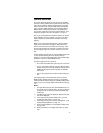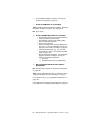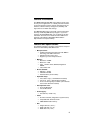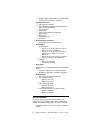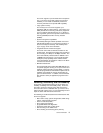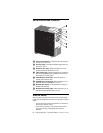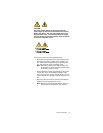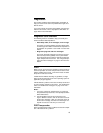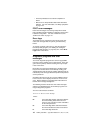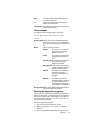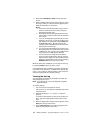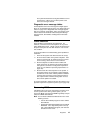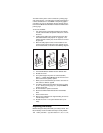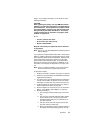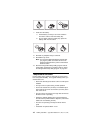
9
Diagnostics
This section provides basic troubleshooting information to
help you resolve some common problems that might occur
with the server.
If you cannot locate and correct the problem using the infor-
mation in this section, refer to “Symptom-to-FRU index” on
page 129 for more information.
Diagnostic tools overview
The following tools are available to help you identify and
resolve hardware-related problems:
• POST beep codes, error messages, and error logs
The power-on self-test (POST) generates beep codes
and messages to indicate successful test completion or
the detection of a problem. See “POST” for more infor-
mation.
• Diagnostic programs and error messages
The server diagnostic programs are stored in upgrad-
able read-only memory (ROM) on the system board.
These programs are the primary method of testing the
major components of the server. See “Diagnostic pro-
grams and error messages” on page 10 for more infor-
mation.
POST
When you turn on the server, it performs a series of tests to
check the operation of server components and some of the
options installed in the server. This series of tests is called
the power-on self-test or POST.
If POST finishes without detecting any problems, a single
beep sounds and the first screen of the operating system or
application program appears.
If POST detects a problem, more than one beep sounds and
an error message appears on the screen. See “POST beep
codes” and “POST error messages” on page 10 for more
information.
Notes:
1. If you have a power-on password set, you must type
the password and press Enter, when prompted, before
POST will continue.
2. A single problem might cause several error mes-
sages. When this occurs, work to correct the cause of
the first error message. After you correct the cause of
the first error message, the other error messages usu-
ally will not occur the next time you run the test.
POST beep codes
POST generates beep codes to indicate successful comple-
tion or the detection of a problem.



